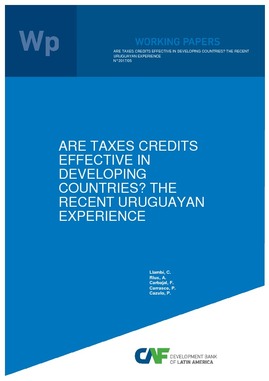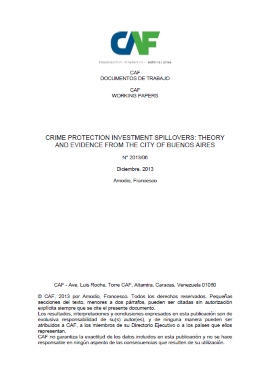Are Taxes Credits Effective in Developing Countries? The Recent Uruguayan Experience
Resumen
Investment promotion through tax incentives has been a key component of the growth strategies pursued in Uruguay by the last three administrations. A new regime was established, regulated by the Executive Decree 455, which caused the main channel for subsidizing investment to undergo a major overhaul. This regime immediately generated a battery of researchable questions about its effectiveness and efficiency. Using a big dataset, first put together for this study from firm-level administrative records kept by the tax collection and pensions institutes between 2005 and 2011, we test the hypotheses of significant and positive effects of obtaining a tax credit through the new regime on investment and employment outcomes. A matched differences-in-differences strategy confirms that the promotion regime introduced in 2008 had a statistically significant effect on the firms’ rate of investment (around 11%); while effects on employment growth rate are more ambiguous. These findings are buttressed by several robustness tests. Further probing uncovers heterogeneity along the promotion timeline, with the greatest effect on the rate of investment occurring in the projects’ first year.
País / Región
Fecha
2017-05-17Citar de esta publicación
Item perteneciente a la Colección

Autor
Rius, AndrésCarrasco, Paula
Carbajal, Fedora
Cazulo, Paola
Llambí, Cecilia
Items Relacionados
Integrating Early-life Shocks and Human Capital Investments on Children´s Education
This study investigates how early-life conditions interact with subsequent human capital investments to influence future educational outcomes. To provide ...
Crime Protection Investment Spillovers: Theory and Evidence from the City of Buenos Aires
This paper studies spillover effects among potential crime victims from investment in observable protection technologies. Criminals and potential victims ...
The effect of property division laws on divorce and labor supply: evidence from Spain
I study how the relative bargaining position of spouses affects the incidence of marital dissolution and the labor supply decision of intact couples. I ...





